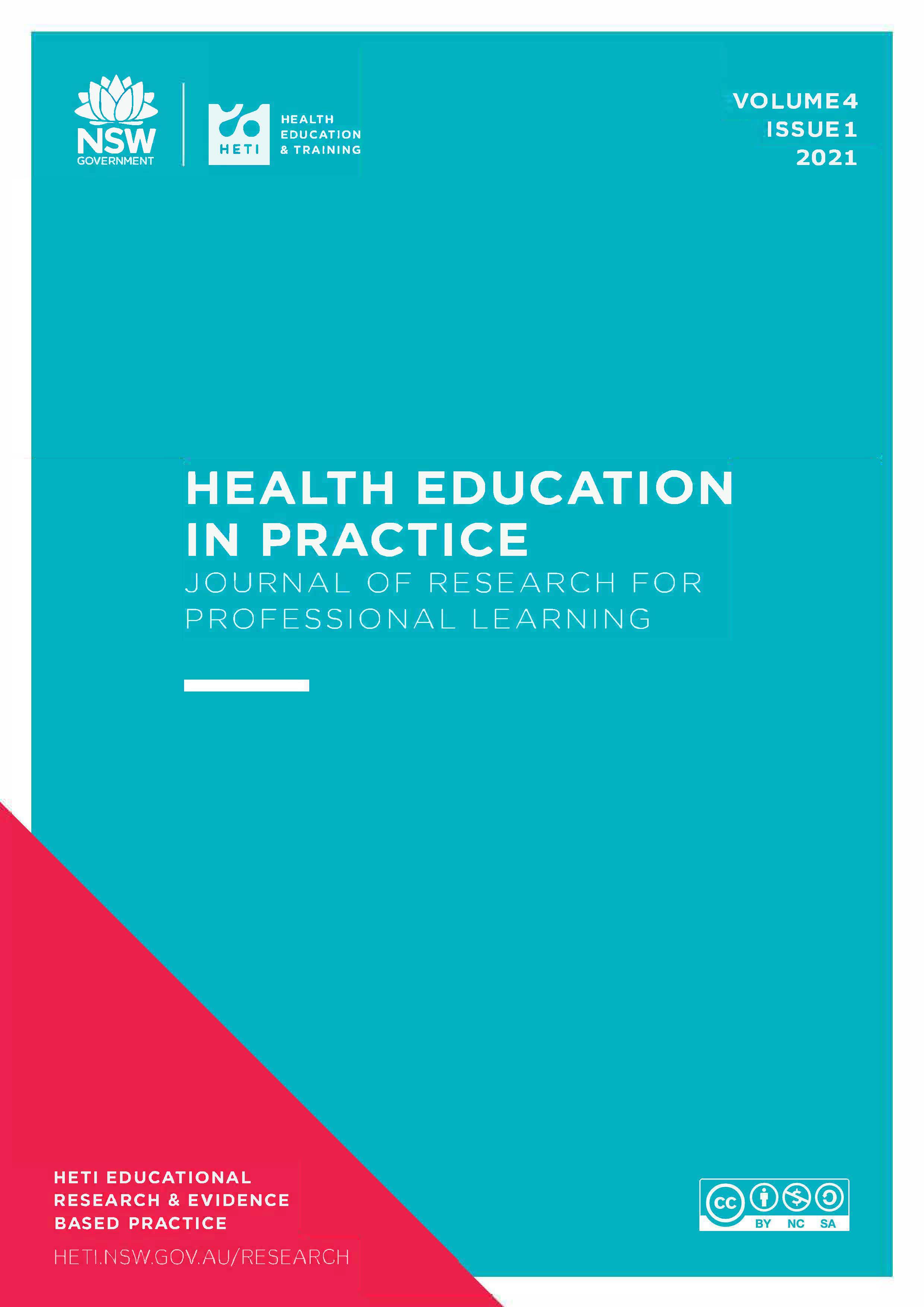SEED Program: The development of a program that has enabled the learning and growth of staff in the response to a community crisis.
DOI:
https://doi.org/10.33966/hepj.4.1.14691Abstract
This paper aims to share a program that took a whole-hospital approach in considering the wellbeing of staff at a time of recovery following the 2019–2020 bushfires. The SEED Program enlisted a person-centred participatory methodology that was embedded within a transformational learning approach. This methodology included collaboration, authentic participation, critical reflection, critical dialogue and listening where the staff voice was the driving factor in the development of strategies for recovery. The SEED Program resulted in the development of five initiatives that included four strategies and a celebration event where staff celebrated their New Year’s Eve in February 2020. The four strategies included the establishment of a quiet room, coffee buddies, Wellness Warriors and 24/7 Wellness. The outcomes from the SEED Program resulted in the development of a more person-centred culture and transformation of staff perspectives in how they understood their role in their learning and learning of others in recovery and support at a time of crisis. The key learnings were the effect of authentic collaboration, the benefit from enabling authentic leadership at all levels within a hospital, and the power of a staff connection to the ‘CORE’ values of the hospital and Local Health District. In conclusion, the staff involved hold the hope that others may benefit from their experience of transformational learning in creating more person-centred workplace cultures while supporting each other to move forward during a crisis. The limitation of the SEED Program was that it was a bespoke practice innovation designed in the moment, responding to an identified need for the staff following a crisis in the local community rather than a formal research approach to meeting the needs of this group of staff.
Downloads
References
Archibald, D, Kellam, H, Stodel, E & Puddester, D 2011, ‘Evaluation of online health and wellness resources for healthcare professionals’, International Journal of Advanced Corporate Learning, vol. 4, no. 2, pp. 18–23. https://doi.org/10.3991/ijac.v4i2.1659
Avolio, B, Weber, T & Walumbwa, F 2011, Leadership: Current theories, research, and future directions. Annual Reviews, California, USA. https://doi.org/10.1146/annurev.psych.60.110707.163621
Brown, B 2010, The gifts of imperfection, Hazelden Publishing, Minnesota, USA.
Brown, B 2019, Dare to lead, Ebury Publishing, London, UK.
Gengoux, G & Roberts, L 2018, ‘Enhancing wellness and engagement among healthcare professionals’, Academic psychiatry: The journal of the American Association of Directors of Psychiatric Residency Training and the Association for Academic Psychiatry, vol. 42, no.1, pp. 1–4. https://doi.org/10.1007/s40596-017-0875-1
Hahtela, N, Mccormack, B, Doran, D, Paavilainen, E, Slater, P, Helminen, M & Suominen, T 2017, ‘Workplace culture and patient outcomes: Whatʼs the connection?’, Nursing Management, vol. 48, no. 12, pp. 36–44. https://doi.org/10.1097/01.NUMA.0000526910.24168.ee
Howie, P. & Bagnall, R 2013, ‘A beautiful metaphor: Transformative learning theory’, International Journal of Lifelong Education, vol. 32, no. 6, pp. 816–836. https://doi.org/10.1080/02601370.2013.817486
McCormack, B & Mccormack, T 2017, Person-centred practice in nursing and health care: Theory and practice, 2nd ed, Wiley Blackwell, West Sussex, UK.
Mezirow, J 2009, ‘Transformative learning theory’, in J Mezirow & E W Taylor (eds.), Transformative Learning in Practise: Insights from Community, Jossey Bass, California, USA.
Polit, D & Beck, C 2012, Nursing research: Generating and assessing evidence for nursing practice, 9th ed, Wolters Kluwer Health/Lippincott Williams & Wilkins, Philadelphia.
Ranse, J & Lenson, S 2012, ‘Beyond a clinical role: Nurses were psychosocial supporters, coordinators and problem solvers in the Black Saturday and Victorian bushfires in 2009’, Australasian Emergency Nursing Journal, vol. 15, no. 3, pp. 156–163. https://doi.org/10.1016/j.aenj.2012.05.001
Rokkas, P, Cornell, V & Steenkamp, M 2014, ‘Disaster preparedness and response: Challenges for Australian public health nurses’, Nursing and Health Sciences, vol. 16, no. 1, pp. 60–66. https://doi.org/10.1111/nhs.12134

